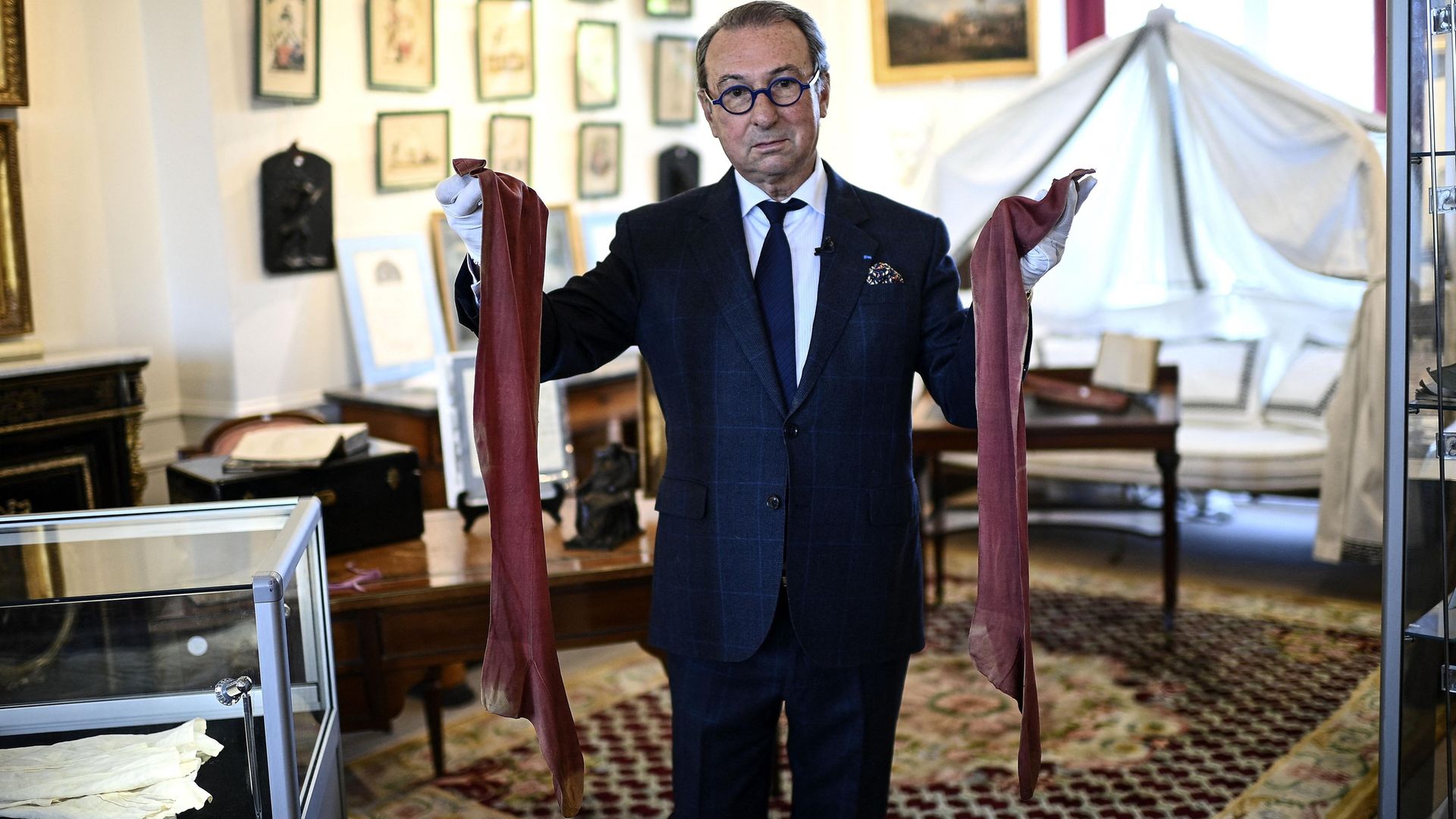
A round-up of some of the weirdest stories from Europe.
Napoleon fans eager to mark the 200th anniversary of his death can now buy replicas of the emperor’s socks for 250 euros (£215).
The idea is the work of Parisian clothing company Mes Chaussettes Rouges, who have based their designs on an antique pair of Bonaparte’s silk socks they recently bought at auction.
For their money, purchasers will get a box in the shape of Napoleon’s column on the Place Vendôme containing six pairs of hosiery – one in silk and five in cotton, including a black pair with a red mark on the heel to commemorate his injury at the battle of Aspern-Essling in May 1809.
The company’s website promises: “This box is available for sale all over the world, except in the municipality of Waterloo in Belgium where delivery is not guaranteed.”
***
Twelve-year-old Pauline Fritz has been homeschooled during the pandemic in her mum Maria’s 40-ton truck.
While her school in Thuringia, Germany, is closed, Pauline sets off with her mother at 6am each day as she delivers PVC sheets for greenhouses. Single mother Maria said: “Fortunately, my boss allowed her to come along. I print out her assignments for her in the evening, then she learns on her own in the passenger seat. In my work breaks we try to solve the tricky tasks together.”
Pauline says she has learned a lot, including that “I now know that I don’t want to be a truck driver.”
***
Prince Emanuel of Liechtenstein has been accused of deliberately killing Arthur, Romania’s largest bear and blaming it on a case of mistaken identity.
The royal, a nephew of reigning monarch Hans-Adam II, is said to have received permission from the Romanian Environment Agency to hunt down a bear that had caused damage to farms in the village of Ojdula. However, he ended up shooting and killing 17-year-old brown bear Arthur instead.
“I wonder how the prince could have confused a female bear who comes to do damage in a village, with the largest male alive, who lived in the depths of the forest,” said Gabriel Paun, president of the Agent Green environmental charity. He added: “The prince did not come to solve the problem of the locals but to kill the bear and take home the biggest trophy to hang on his wall”.
***
Belgians will celebrate their night-time curfew being lifted this Friday – except in Brussels, where a loophole means drinkers will have to go home at 10pm before being allowed to go out again two hours later.
A countrywide order to stay at home from 12-5am is being lifted at midnight as Friday turns into Saturday, but the capital’s curfew has always begun two hours earlier and will remain in place.
“This is a Belgian joke, and not even a good Belgian joke,” Brussels MP Gilles Verstraeten said.
***
Ukrainian authorities have seized 1,500 bottles of Britain-bound “artisanal spirit” from apples harvested near the Chernobyl radiation zone.
The Chernobyl Spirit Company, which made the vodka-like alcoholic drink, says it is eager to prove whether food grown within the 30km zone around the power plant, scene of a nuclear accident in 1986, is safe for human consumption. However the apples used in the Atomik apple spirit were grown just outside the zone.
The bottles were destined for testing by Professor Jim Smith of Portsmouth University, who has claimed that Atomik is “no more radioactive than any other vodka”.
***
A church in the village of Łubiana, Poland, has had solar panels in the shape of crosses installed on its roof.
A spokesperson said that the priest of St. Maksymilian Kolbe wanted to reduce his lighting bills without asking his congregation for donations. However, some parishioners are reportedly now referring to it as the “Church of St. Photon”.
***
Hundreds of people have received Covid-19 vaccine injections at Bran Castle, central Romania, the so-called home of Dracula.
Doctors are encouraging tourists visiting the area to get their jabs, via an advertising campaign with the slogan “Who’s afraid of the vaccine?” and an illustration showing syringes as vampire fangs.
Bran Castle is associated with Vlad ‘The Impaler’ Tepes, the bloodthirsty 15th-century Romanian prince who is said to have inspired author Bram Stoker. However Tepes is never thought to have visited the castle.
Warning: Illegal string offset 'link_id' in /mnt/storage/stage/www/wp-includes/bookmark.php on line 357
Notice: Trying to get property 'link_id' of non-object in /mnt/storage/stage/www/wp-includes/bookmark.php on line 37







